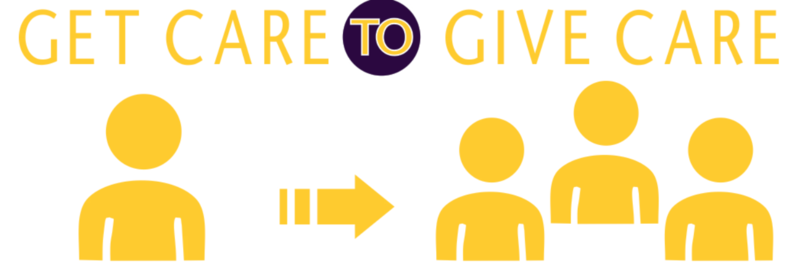Mindfulness - A New Way to Give & Take Care - Part 1

I always look forward to National Family Caregivers Month because I love celebrating all of you unsung heroes who give of yourselves so unselfishly. I have been fortunate to have met so many of you over the years. I want to thank you for your courage, compassion, and support of each other and those you care for. As we well know, caregiving is not for sissies.
This year, the theme is so appropriately, “Take Care to Give Care”. In preparation for November’s month-long ‘thank you’, I’d like to begin exploring the practical aspects of mindfulness as an important tool for caregivers.

It’s exciting to me that the act of learning how to pay attention and live in the moment, just as it is, can lead to more relaxation, more balance, and more confidence in our actions. It is a peaceful and skillful way of working and being in the world.
There’s a lot of talk about “mindfulness” these days. In fact, if you Google search the term, you are likely to get literally millions of hits. Mindful-based approaches are being applied, taught and practiced across a wide spectrum of clinical and behavioral health; from pain relief and management to caregiving.
Yes, caregiving. As only we know, caregiving is life-altering, all-consuming, potentially draining, enormously challenging, and sometimes terrifically rewarding - all at the same time.
Nancy Kriseman, LCSW, was the first thought leader I know of to meld mindfulness with caregiving in her 2014 book “ The Mindful Caregiver: Finding Ease in the Caregiving Journey
- Adopting a practice of mindfulness, which helps caregivers become more self- aware and fully present with the person for whom they are caring, and
- To Honor “the spirit-side” of caregiving, which offers new ways of connecting to one another. These approaches take into account not just the needs of the care recipient, but also the needs of the caregiver and other people in his/her life.
“Mindfulness reminds you that you matter!” says Kriseman. “It nudges you to be kind and gentle, nonjudgmental, and compassionate with yourself. It can help you prioritize, set limits, stay true to yourself, and ultimately feel more at ease during the caregiving journey.” Mindful caregiving means being intentional. “Being intentional requires that caregivers learn to ask themselves the following about how they provide care:
- Is this necessary?
- Am I doing too much?
- Am I expecting too much of myself?”
As a longtime caregiver advocate whose mantra was, “Take your oxygen first!” I am happy to see this concept taken to the next level. I believe that mindfulness is the next, best practice to fight the depression, isolation, and burnout so prevalent among us. Noticing our feelings without judgment offers us the opportunity to regain compassion for ourselves and others.
In the next segment, we’ll talk about what mindfulness really is.
I hope that you will “Seize the Moment!” and look forward to engaging in learning about the nature, benefits and practice of mindfulness, and wish you comfort in investigating its possibilities.
From the bottom of my heart, I wish you a Happy National Family Caregivers Month!

